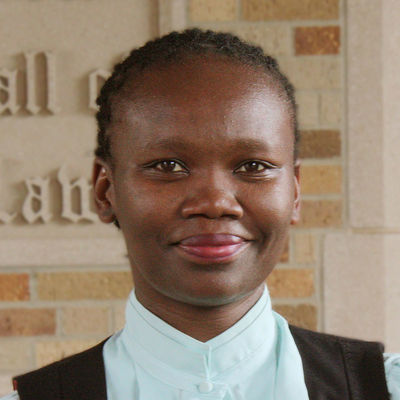Catherine Anite

Catherine Anite received her LL.B. in law from Makerere University in 2009, and a post graduate diploma in legal practice from the Law Development Centre, Kampala in 2010. Her focus as a human rights advocate is in freedom of expression and freedom of the media. From 2012 to 2015 she was Chief Legal Officer at the Human Rights Network for Journalists in Uganda, where she represented journalists, pursued policy analysis, and spearheaded advocacy campaigns on behalf of journalists and other media practitioners. Ms. Anite was selected by Advocats Sans Frontiers and the East Afrcan Law Society to participate in a human rights defenders project in East Africa and the Great Lakes Region, and served as a senior judge at the International Media Law Moot Court at the University of Oxford. In 2014 Ms. Anite received a Mandela Washington Fellowship from the U.S. State Department.
“I believe that freedom of speech is the cornerstone of democracy and if people are allowed to freely engage in debates, then human rights will flourish”
How did you first become interested in human rights law?
Most if not every lawyer’s dream is to pursue a corporate career and become affluent. I was no exception to this notion! My perspective changed, however, after I interned with the Danish Refugee Council in post-conflict areas of Northern Uganda, where I provided pro-bono legal services to Sudanese and Congolese refugees. My experience in the camps greatly influenced my worldview, and thereafter I was convinced that my career would be focused on human rights. Indeed, I moved on to provide pro-bono legal services for indigent women and later to media practitioners.
From what or whom have you drawn inspiration in your work as a human rights lawyer?
It is often difficult to find unswerving mentors when starting out a career as a novice human rights advocate. Nani Jansen and Peter Noorlander, of the Media Legal Defense Initiative in London, have certainly been a great inspiration, always supporting and encouraging me even when results of my advocacy and legal work are not forthcoming. It is no coincidence that one of our assigned cases in the regional human rights class was successfully argued by Nani. She has created a niche as an outstanding freedom of expression lawyer, and I continue to be inspired by her zeal.
What issues do you feel most determined to address as a human rights lawyer?
I believe that freedom of speech is the cornerstone of democracy and if people are allowed to freely engage in debates, then human rights will flourish. I would like to continue working towards an environment conducive to free speech in East Africa, through strategic litigation and dialogue with authorities for legal and policy reforms. Coming from a patriarchal society where women have faced vast abuses, I am also inclined to advocate for their rights.
What obstacles do you perceive as the most challenging in your work?
In Uganda there is increasing intolerance for free speech and expression of opinions, particularly views that are seen as “critical of the state.” Government institutions, especially the police, have not hesitated to use lethal force and other unscrupulous means to stop, gag or deter citizens’ expression of opinions on civil and political liberties on grounds of national security. Lawyers, journalists, and civil society actors have been attacked and arrested and trumped up charges slapped on them, including a crack-down on media. Accountability mechanisms for human rights violations have been compromised making perpetrators more powerful than the systems. This has posed a great risk for the advancement of human rights.
Why did you decide to study human rights at Notre Dame? How has the experience been?
Notre Dame has a conspicuous reputation for producing notable human rights advocates around the world. I was impressed by the serenity of the campus and the extraordinary faculty, and I looked forward to an opportunity to meet a diverse community of skilled persons from whom I can learn and share experiences on complex human rights concerns. This experience has provided me with an ideal platform to discuss and share key policy considerations on practical aspects of human rights, with talented individuals from different backgrounds. Notre Dame has expanded my friendship base!
How will an LL.M. education from Notre Dame allow you to be a more effective human rights lawyer?
This LL.M. will undoubtedly propel my career forward and expand my horizons by giving me the opportunity to learn, re-learn, and unlearn. The resources I have been exposed to provide me with a platform to enhance my intellectual capacity and capabilities, and to face the challenges encountered by human rights lawyers. I also believe that the invaluable alumni network will add value to my work.